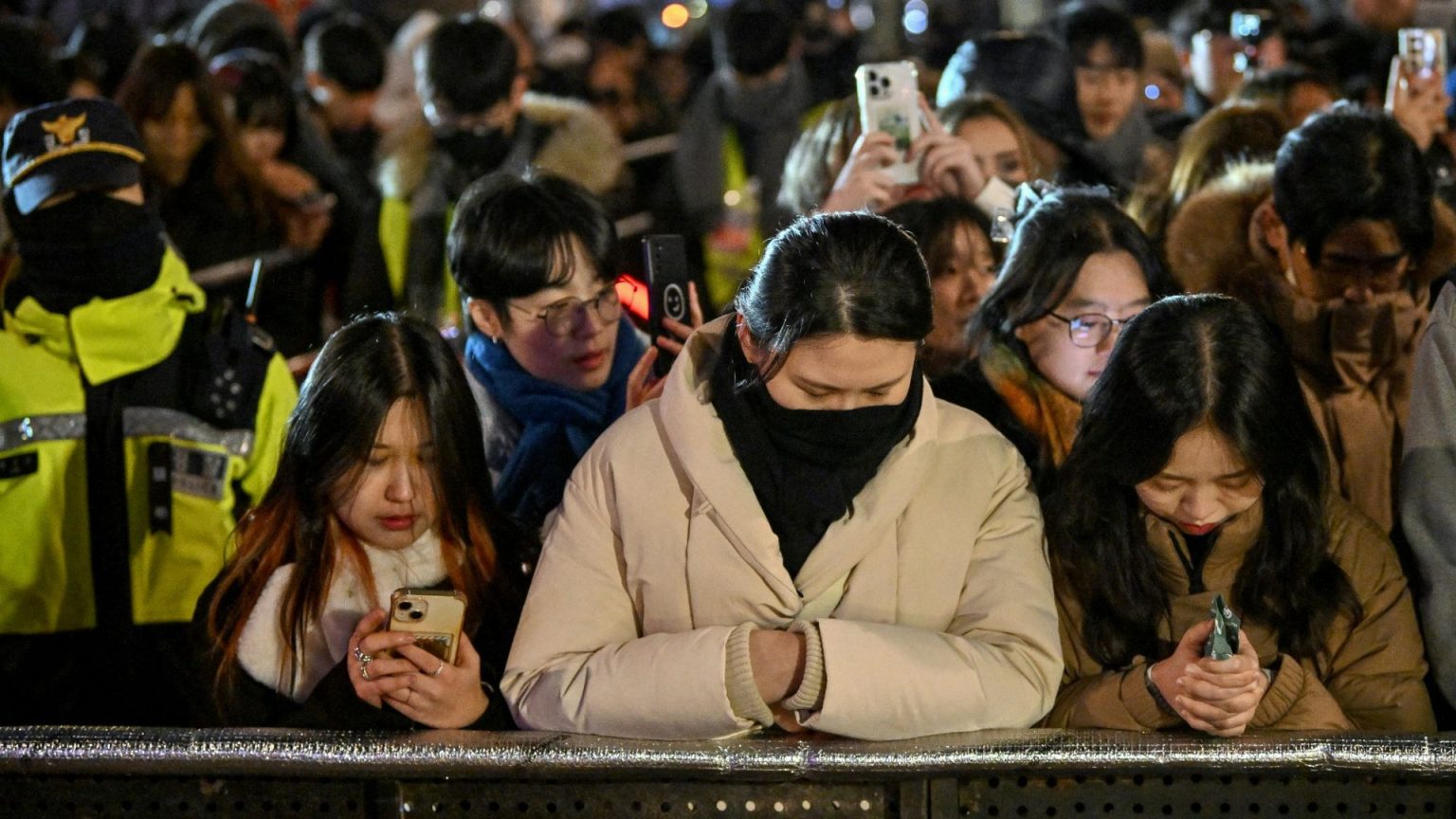South Korea ushered in the New Year with a somber silence, a stark contrast to the typical joyous celebrations. The nation grapples with the aftermath of a devastating year marked by political upheaval and a tragic plane crash that claimed 179 lives. The subdued New Year’s Eve events reflected the collective grief and uncertainty that has gripped the country. Thousands gathered in Seoul, but the usual festive atmosphere was replaced by quiet reflection and mourning. The ringing of the Bosingak bell, traditionally a celebratory act, served as a solemn tribute to the victims of the Jeju Air disaster. A specially constructed “Midnight Sun” structure symbolized the lives lost and the enduring impact of the tragedy.
The nation’s political landscape remains precarious following a turbulent month that saw two presidents impeached in rapid succession. Former President Yoon Suk Yeol’s controversial decision to declare martial law and deploy troops to the National Assembly triggered widespread protests and ultimately led to his impeachment. His successor, Prime Minister Han Duck-soo, also faced impeachment amid the ongoing political instability. This unprecedented series of events has left South Korea in a state of political limbo, with lawmakers struggling to chart a course forward. The absence of stable leadership further compounds the sense of unease and uncertainty pervading the country.
The recent plane crash, the worst aviation disaster in decades, has deepened the nation’s sorrow and amplified the pre-existing political tensions. The Jeju Air flight, bound for Muan International Airport, crashed upon landing and erupted into flames. Of the 181 passengers and crew on board, only two survived. The majority of the victims were Korean nationals, with two Thai citizens among the deceased. The crash has devastated families and communities across the country, plunging the nation into mourning. Investigations into the cause of the accident are underway, with preliminary reports suggesting a bird strike may have played a role.
As the rest of the world celebrated the arrival of the New Year with fireworks and festivities, South Korea marked the occasion with quiet remembrance. The haunting images of the subdued ceremonies in Seoul underscored the depth of the nation’s grief. The usual cheers and revelry were replaced by silence and reflection. The Bosingak bell tolled in the darkness, a mournful sound echoing the collective loss. The subdued light show, a brief flicker against the backdrop of grief, symbolized the fragility of life and the enduring impact of tragedy.
The doomed flight, Jeju Air, met a fiery end after reportedly striking a bird during its approach to Muan International Airport. The impact is believed to have damaged the landing gear, leading to a series of aborted landing attempts before the final, fatal crash. The plane skidded off the runway and collided with a concrete wall, triggering a devastating explosion. The fireball that engulfed the aircraft is thought to have been caused by ruptured fuel tanks. The crash site became a scene of unimaginable devastation, with rescue workers struggling to recover the remains of the victims.
The political turmoil that preceded the plane crash further complicated the nation’s response to the tragedy. The impeachment of President Yoon Suk Yeol stemmed from his controversial martial law declaration, which he justified as a necessary measure to counter alleged North Korean attempts to destabilize the country. However, the move was widely condemned as an overreach of power and an attempt to suppress dissent. Mass protests erupted in Seoul, with citizens forming human barricades to block the advance of troops deployed to the National Assembly. The subsequent impeachment of both Yoon and his successor, Prime Minister Han, has left South Korea in a state of political paralysis. The search for new leadership continues amidst the backdrop of national mourning and widespread uncertainty about the future. The arrest warrant issued for the suspended President Yoon adds another layer of complexity to the already volatile political situation. As South Korea navigates this difficult period, the nation faces the daunting task of healing from both political instability and profound loss. The road to recovery promises to be long and arduous, requiring unity, resilience, and a commitment to rebuilding trust in leadership and institutions.











